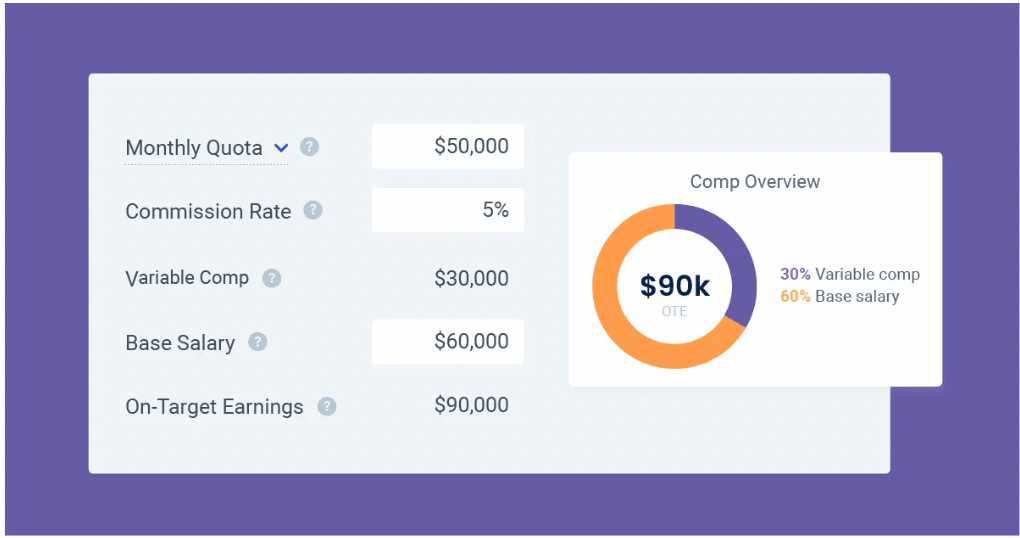Your top sales performers are crucial to your organization’s success, yet retaining them is always tricky, with recruiters regularly slipping into their DMs.
That’s why leaders must continuously give their top reps opportunities for growth. However, that “growth” doesn’t necessarily mean a leadership role. Not every high-performing rep wishes to become a leader; in fact, if you ask them, you’ll find many are happy focusing on their pipelines and enjoying their commission checks.
Yet leaders routinely look to the top of their leaderboards, eager to pluck the highest rep for the next manager role. This dilemma, often rooted in the Peter Principle, presents a unique challenge for sales leaders.
The Peter Principle, introduced in the 1960s by Dr. Laurence J. Peter, theorizes that employees earn promotions based on performance rather than their abilities relevant to the intended role.
It’s an expensive mistake that companies tend to overlook.
Incentivize Top Reps
Give your reps the visibility to see how close they are to the next commission tier with forecasted views of their earnings.
Learn MoreIn 2018, the National Bureau of Economic Research published “The Peter Principle Isn’t Just Real, It’s Costly,” citing evidence from sales performance and promotion practices across 214 firms. The data indicates that managers promote high-performing sales reps more often than the reps’ peers.
Specifically, a rep outperforming their team by 2x is 14.3% more likely to be promoted.
More alarming, doubling the new manager’s pre-promotion sales corresponded with a 7.5 percent decrease in the sales performance of each new manager’s subordinates. Translation: the higher the new manager’s sales performance before promotion, the lower the performance of their team members after they assumed the managerial role.
So, what can you do to engage your top-performing reps without dangling leadership opportunities they have no interest in? We connected with 8 sales professionals across Women In Sales, Pavilion, and more to offer insights and strategies to respect their decisions while leveraging their talents effectively within the organization.
Featured in this blog:
-
- Dounia Gassa, Founder
-
- Alex Gold, VP of Sales
-
- Lindsay Rios, Advisor & Fractional Sales Leader
-
- Rohan Bairat, CEO & Founder
-
- Derek Puerta, Sales Rep
-
- De’Andreya Searight, Senior Sales Manager
-
- Dimitra Spiliotopoulou, Head of Sales
-
- Jessica Erven, Sales Enablement Consultant
What top-performing reps care about
- Money
- Autonomy
- Critical feedback
- Opportunities to share their successes
- Invite to strategy sessions
The first rule regarding your high performers is never to assume you know what they want. You can avoid this by… asking them.
“Literally ask them what their goals are in life and then tie how being a successful individual contributor helps them achieve those goals,” said Lindsay Rios, advisor and fractional sales leader. “Make a plan to help them know exactly what they need to do. If it’s not financially tied, then give them a path to feel really still fulfilled as an IC.”
Engage them in open and honest conversations about their career aspirations, goals, and preferences over routine 1:1s.
By soliciting their input and listening attentively to their feedback, you demonstrate respect for their desires and motivations, fostering a collaborative environment where they feel valued and understood.
Here’s what some of our sales experts had to say.
Jessica Erven: Your top reps care about money and autonomy. That’s the only answer for people who don’t care about ladder climbing. This is assuming the culture is already good.
Rohan Bairat: At that level of performance, they are not looking for praise; they are looking for new learning, training, and critical feedback. That’s how you motivate them. I brought in a lot of expertise in pricing, technology, and external coaching for these reps.
Dounia Gassa: In my experience leading/coaching high-performing tenured teams, I had several top-performing global ICs who didn’t want to go into leadership. Instead, here’s what they liked and what made them stay for over 5 years: they thrived on being on stage, not just for getting rewards, but for being the bright spot and sharing their wisdom/learnings with the broader sales audience/leadership.
Alex Gold: Money is always the driver. You go into software sales for money. But I would have really liked to be more involved in the decision-making, having an invite to the C-Suite table, and understanding and contributing to the “why.”

Is it time to churn a customer?
5 RevOps and Sales leaders share when and how they’ve intentionally churned a customer.
Read MoreHow Sales Leaders Can Support High Performers
- Invite them to contribute to team meetings to share wins/losses
- Provide alternative leadership opportunities to lead projects temporarily
- Involve top performers in company initiatives
- Come with a partnership mentality
- Elevate their position
De’Andreya Searight: Focus on fostering a supportive team environment. Encourage participation in daily sharing sessions where everyone can discuss wins and challenges.
Leaders can also provide top performers with opportunities to take on leadership responsibilities by temporarily assigning them to lead projects or initiatives. This allows them to showcase their skills while gaining valuable leadership experience.
Furthermore, leaders can involve top performers in company initiatives that offer select individuals the chance to be the first to hear about changes or updates, empowering them to disseminate this information to the team. This recognizes their contributions, builds trust, and reinforces their sense of responsibility within the team.
Rohan Bairat: I’ve consistently overseen teams with reps who had 15-20 years of sales experience and flawless records of achieving quota. As a leader, you must bring a partnership mentality to these reps. Ask questions versus providing responses and solutions. If they need something, they will come to you. Rely on their insights, leverage their expertise, and give them a seat equivalent to yours at pipeline calls or quarterly business reviews. Ask them how they move the ball forward in their deals versus you telling them how to.
You can also elevate their position by having them share a story of their deal at company-wide events (like a Sales Kickoff) and asking them to represent Sales at town hall panels.
Lindsay Rios: Tap on them for the projects that you know they would be the best for — and not just any and every project that pops up.
What Sales Leaders Should Do Differently
- Clear communication on what leadership means within an org.
- Avoid associating reps who don’t want to pursue leadership roles as having a “lack of ambition”
- Offer assistance in identifying resources to help them achieve goals
- Ask your reps, “How can I help?”
- Resist telling them what needs to be done
- Over process
- If they don’t want to take on extra projects, find other ways to recognize them
Dimitra Spiliotopoulou: Provide better education on what leadership means within their organization.
Managing a team doesn’t automatically qualify you as a leader. And, equally, it does not mean a lack of ambition among the individual contributors. Leading can imply you take a step back in active selling. Some of us love the feeling of hunting and closing!
Derek Puerta: Show some emotional intelligence; ask me how you can help me continue succeeding at my role or help me transition into what I may want to do. Stop making my move to leadership about you or what you’re being told is best for the company’s bottom dollar.
De’Andreya Searight: Focus on their personal and professional growth while respecting their preferences. Biannually, engage with each team member to discuss their individual goals, both personal and professional. Offer assistance in identifying company or community resources to help them achieve these goals. By making them feel individualized and in control of their goal-setting, you act as a catalyst to support their development without imposing specific career paths.
Rohan Bairat: Often, people hire great reps and then almost tell them what needs to be done. This is the worst thing to do. At a previous organization I worked for, the CEO notoriously inserted their authority into deal calls and almost questioned the rep on every angle.
The other thing – killing the reps by the process. Process is really important in many scenarios. But if someone is producing 3x-4x, they got their formula figured out. You don’t need to watch or ask them to record every meeting call.
Lindsay Rios: If they don’t want to take on extra projects, then recognize them for things they do well that are more qualitative than quantitative

Sales Compensation Calculator
Calculate OTEs, sales quotas, and commission rates to design your sales compensation plans.
Try for FreeConclusion
In conclusion, effectively engaging and supporting top-performing sales representatives who choose not to pursue leadership roles is crucial for maintaining a high-performing sales team.
Our experts have provided valuable insights into understanding the motivations of these reps and offering them opportunities for growth and recognition within the organization.
By soliciting their input, providing alternative leadership opportunities, and fostering a supportive team environment, sales leaders can leverage the talents of their top performers effectively while respecting their career preferences.
Clear communication, emotional intelligence, and personalized support are key to maximizing the contributions of these valuable team members and driving overall sales team success.
And, of course, don’t forget to incentivize them with compensation plans that reward over-performance and pay them competitively and fairly. Bonus points if you also give them a platform like QuotaPath to track their earnings and attainment progress and drive revenue.



